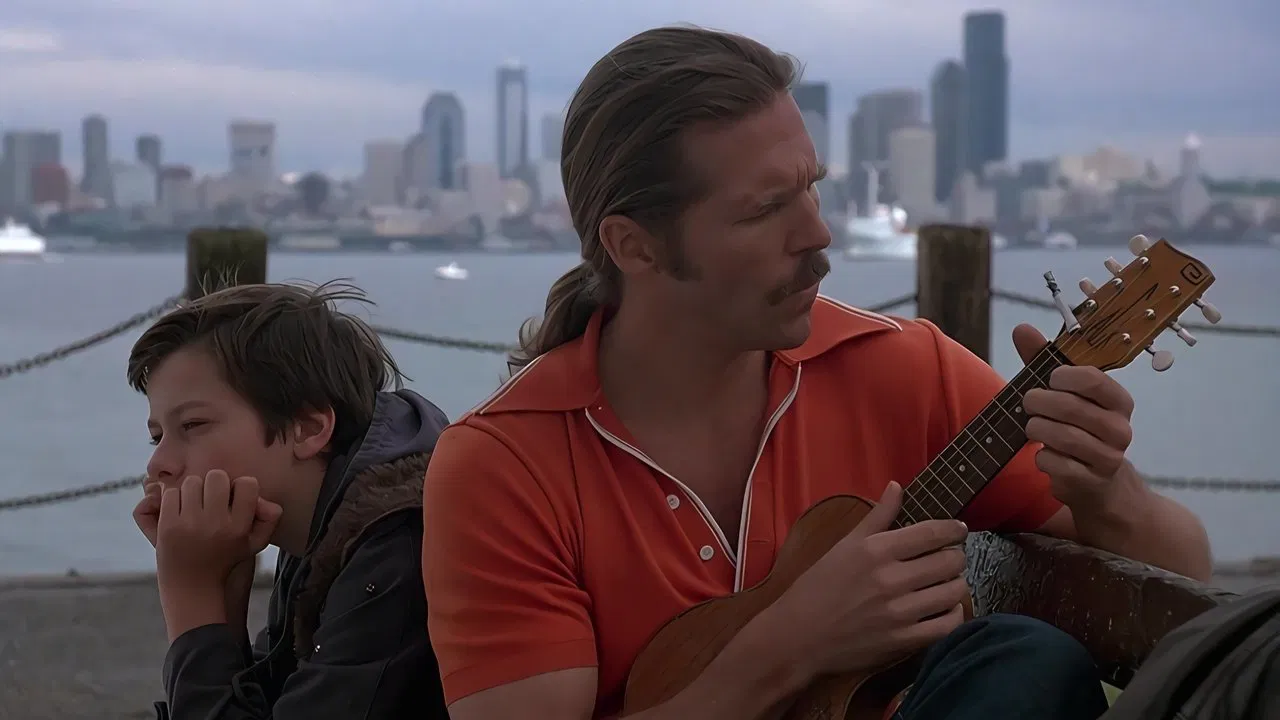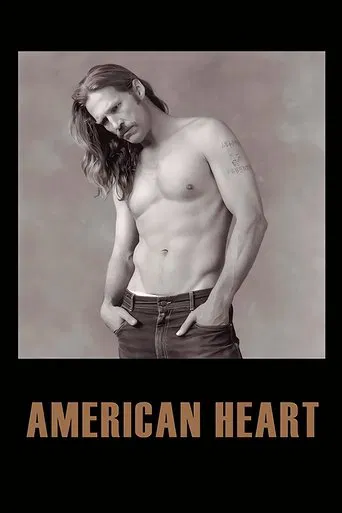

An absolutely powerful movie with Jeff Bridges giving a sensational performance as a recently released prisoner connecting with his young son.This is definitely a film which shows the importance of environment in the lives of our protagonists. The Bridges character wants to go straight but is held back by environmental influences, and not being able to secure employment doesn't help the situation.His intelligent but emotionally wrought son wants to know more about his hooker mother. In constant outbursts with his father, he soon falls into the mean streets of the city and with other outcasts as well.While the ending of the film is tragic, there is hope for the new generation.
... View MoreAmerican Heart casts Jeff Bridges in the role of a recently paroled convict who would like to make a fresh start of things. But from the gitgo he's saddled with a responsibility of his own making. His 14 year old son Edward Furlong runs away from the uncle he's been staying with and hooks up with Bridges. Sad to say but it's like they're doomed from the start. They live in an SRO hotel on Seattle's seamier side. Bridges is working as a window washer, barely making ends meet. Furlong tries to enroll in school, but the bureaucracy proves too much. He falls in with a lot of street kids including child hooker Tracey Kapisky who reminds me very much of Jodie Foster in Taxi. She's lives in the same SRO with her mother who's in the same profession and jealous of her daughter.Bridges also has a younger associate, Don Harvey who'd like to get him back in the criminal life. He's also found a bit of romance with a prison pen pal in Lucinda Jenney.American Heart is a real downer of a film, but very well done. Sad to these are very real people. But oddly enough it follows the same plot line as the Shirley Temple movie Now and Forever with Gary Cooper and Carole Lombard. Sort of like an R-rated version of it.This film is not one for those who like happy endings. Still I think it is one Jeff Bridges finest screen achievements.
... View MoreI first heard about this movie when it was filming in Seattle, my home. Being a fan of Jeff Bridges, I had to see it when it was released. I now own it on video, and it is one of my favorites. The Seattle locations are used well, but the basic story could happen anywhere. Ex-con Bridges tries to build a life for himself and his estranged son after his release from prison. There are subplots dealing with a pen-pal romance and Jack's ex-partner, but the focus is on the father-son relationship. What makes the film fascinating is the texture and depth of Bridges' performance. Jack is not too smart, a drunk, and flat broke. He is thrown into a harsh, uncompromising world at the very bottom rung, and somehow must find a way to survive AND stay straight. As he gradually takes responsibility for his son, Nick, he regains his self-esteem and humanity. Bridges shows us all this with humor, honesty, and zero sentimentality. He never shies away from exposing Jack's flaws, but also imbues him with a raw sort of nobility. Flashback sequences drawing a parallel between young Jack and Nick add a layer of poignancy.There is level of verisimilitude and frankness in "American Heart" that contemporary, mainstream American movies rarely exhibit. In form it greatly resembles Dustin Hoffman's remarkable "Straight Time", but this film is about relationships, not crime. If all you want from a movie is escapism, stay away. Those who like to wander near the Edge will be rewarded."you keep me straight, I'll keep you straight"
... View MoreI have to admit being somewhat biased toward this film, as I was living in the apartment building (at the time) where most of the filming took place! The rent was $225/month if I remember correctly, and it was indeed a "studio"... complete with bare bulb hanging from the ceiling and a lot of roaches :-) (the room used in the movie was somewhat nastier than the one I was in - there was a top floor, a middle and a basement, and I was living in one of the middle floor rooms at the time). But I got to see a great deal of the process of filming a movie (extremely interesting and educational) as well as meeting Jeff Bridges and Edward Furlong (no, I don't appear anywhere in the film as either an extra or an actor). As for the movie itself, it turned out quite a bit better than I had expected. Martin Bell is underrated as a director, and it's unfortunate that lately he's concentrated on TV rather than movies - he really is talented (See "Streetwise," 1984). The ending of American Heart really was sad, although we've seen it before in a lot of movies. Yet another reflection on the sad state of today's society.And now, a small revelation... in the movie, the apartment where "Jack" and his son lived was portrayed as being on Queen Anne Hill in Seattle. Actually, the building used in filming was on Capitol Hill, a few blocks west of Broadway. No, I'm not going to give away the street address or the name of the apartments, sorry :-).My overall review for "American Heart" - 9/10.
... View More